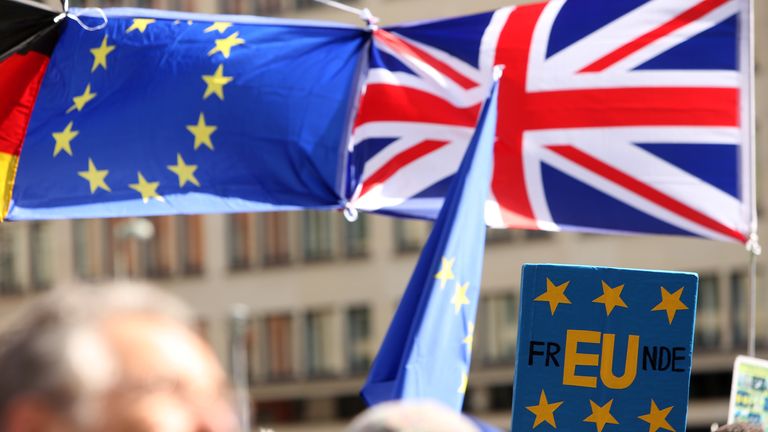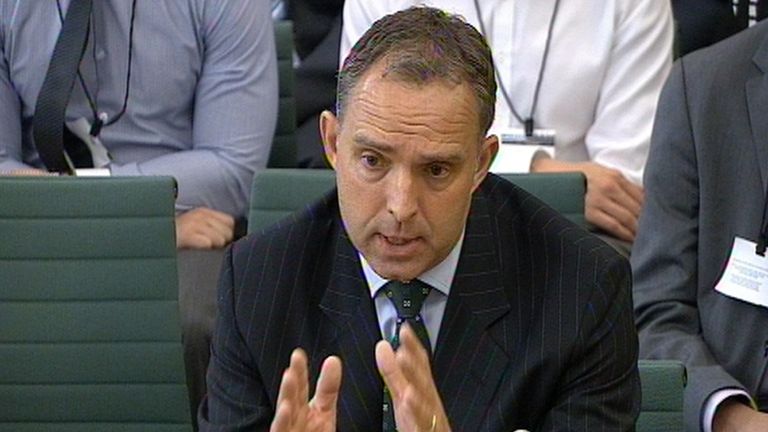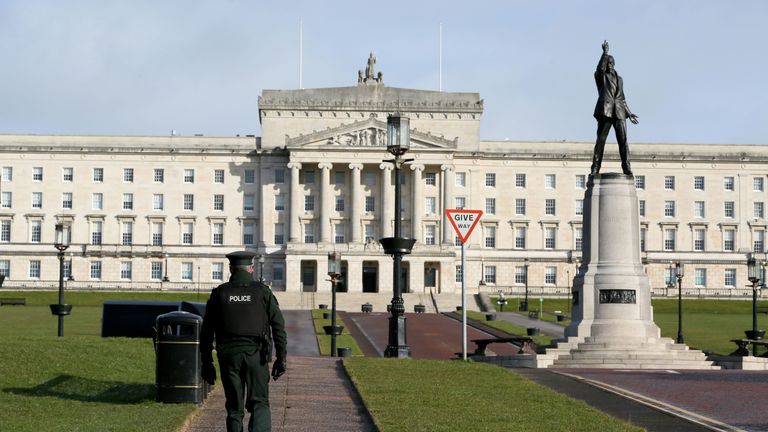Why did Theresa May ditch a no-deal Brexit?
“No-deal is better than a bad deal” was Theresa May’s mantra for two years, making clear that Britain would walk away from negotiations with the EU if necessary.
Her statement after the marathon cabinet meeting on Tuesday night, however, put paid to that.
In a move which threatened to split her party – always something she had sought to avoid – Mrs May dramatically changed strategy and announced she would seek a deal with Labour support.
What changed her mind? I have been told by government insiders and those close to the prime minister that the answer is the UK union.
One of her inner circle said: “She’s fixated on the union. No-deal clearly puts huge strain on the Irish border and the consequence of that is a border poll becomes a real possibility.
“She thinks it would be high risk and if it succeeded there would be a great impetus to Scotland. It could be that serious in terms of the breakup of the UK.”
Two other government sources told Sky News they believed the union was the decisive factor in Mrs May’s thinking.
One said: “It was the union. The prospect of direct rule and some of the decisions that would need to be made in that situation are very unpalatable.”
Another source added that the prospect of a border poll in Northern Ireland was “very real” and something that other cabinet ministers were also concerned about.
In public, Mrs May has taken to saying that the numbers in parliament would not allow no-deal, and MPs flexed their muscles yesterday to force through legislation demanding a delay.
It is also true that the government’s economic predictions suggest no-deal would, in the long run, wipe 9% off the economy, and government departments have warned Number 10 about the disruption which could ensue.
But it remains the legal default and until very recently, some around Mrs May – although not all – suspected she would rather go for no-deal than risk splitting her party and going back on her red lines.
The risks to the union were highlighted by the cabinet secretary Sir Mark Sedwill, who worked with Theresa May at the Home Office and is also national security adviser.
He wrote a letter to the cabinet last week about the risks of no-deal, which was leaked to the Daily Mail.
The memo, which was discussed at Tuesday’s cabinet states, says, according to the newspaper: “The stability of the union would be dislocated”.
Northern Ireland, it warns, would require direct rule for the first time since 2007.
The Assembly at Stormont has not sat for two years, with civil servants running day-to-day operations.
But decisions about security in a no-deal situation would need to be made by government ministers, Mrs May was warned.
“The running of Northern Ireland under no-deal is a sensitive issue,” Sir Mark is quoted as saying.
“The current powers granted to the Northern Irish secretary would not be adequate for the pace, breadth or controversy of the decisions needed to be taken through a no-deal exit. Therefore we would have to introduce direct rule.”
The Good Friday Agreement 1998 sets out the conditions for a referendum on Irish reunification.
The Secretary of State for Northern Ireland, currently Karen Bradley, must decide whether a majority of voters in the nation favour it.
Sinn Fein has called for this to happen within five years, but it is opposed by all unionist parties.
Former prime minister Tony Blair is among those who have warned for some time that Brexit makes a united Ireland more likely.
Polls suggest that opinion is moving in that direction, especially if there is no deal.
The decision to try and stop no-deal at all costs is high risk for the Conservative Party.
Just 36 Tory MPs backed a customs union relationship with the EU in indicative votes last week.
A training session held for Tory MPs on Monday about what a customs union is was attended by just 45 MPs.
Meanwhile more than 170 MPs signed a letter to Theresa May last weekend saying she should go for no deal if her withdrawal agreement fails in Parliament.
Two resignations have already followed.
Leave-supporting minister Nigel Adams quit his job as minister for Wales, writing to the prime minister to say he could not support a customs union “cooked up with a Marxist” and that she should have taken the UK out without an agreement.
Brexit minister Chris Heaton-Harris, who is responsible for no-deal planning, also quit, saying in his letter: “I completely understand you do not want to leave the EU without a negotiated deal and that obviously makes my job in government irrelevant.”
In January, shortly before cancelling her second “meaningful vote”, Theresa May told the House of Commons: “To those who think we should reject this deal in favour of no deal because we cannot get every assurance we want, I ask what a no-deal Brexit would do to strengthen the hand of those campaigning for Scottish independence or indeed of those demanding a border poll in Northern Ireland.
“Surely that is the real threat to our Union.”
To those familiar with her thinking, the impression is that the prime minister has become increasingly swayed by that argument.
Source: Read Full Article







